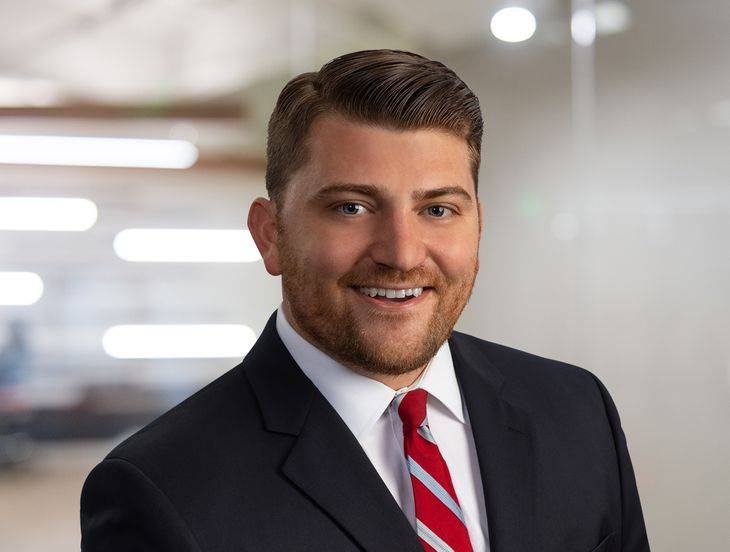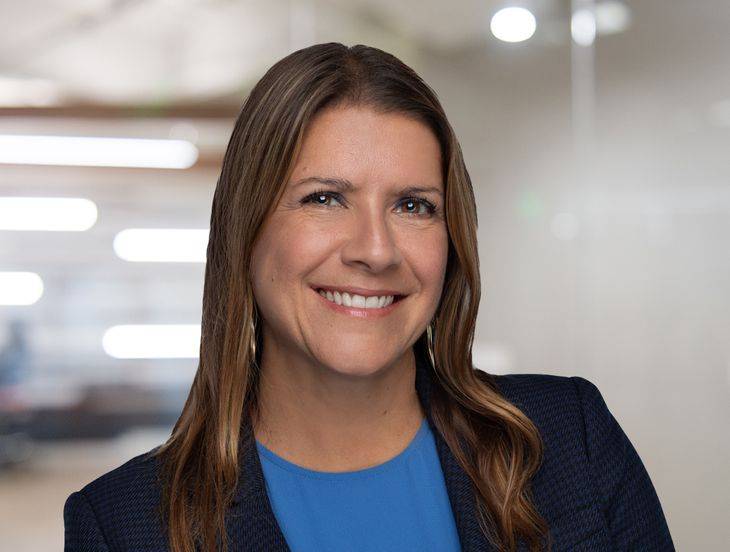March 2021: The Top 13 Labor And Employment Law Stories
Insights
4.02.21
It’s hard to keep up with all the recent changes to labor and employment law. While the law always seems to evolve at a rapid pace, there have been an unprecedented number of changes for the past few years—and this past month was no exception.
In fact, there were so many significant developments taking place during the past month that we were once again forced to expand our monthly summary well beyond the typical “Top 10” list. In order to make sure that you stay on top of the latest changes, here is a quick review of the Top 13 stories from last month that all employers need to know about:
- What Employers Need To Know About Biden’s American Rescue Plan – After several weeks of tense negotiations and legislative twists and turns, President Biden’s latest COVID-19 stimulus package – the American Rescue Plan – was passed by Congress became law on March 11. The measure provides $1.9 trillion in economic relief, with many of the specific items directly affecting employers. What do businesses need to know about this finalized legislation?
- New COVID-19 Stimulus Law Extends Employer Tax Credits for Voluntary Leave And Makes Other Under-the-Radar Changes: The 5 Things You Need To Know – The latest COVID-19 stimulus package, the American Rescue Plan Act (ARPA), contains a myriad of provisions to provide relief to individuals and employers – including some important changes to employer tax credits that have somewhat flown under the radar. While Congress originally extended the tax credit for employers who voluntarily continued to provide emergency paid sick leave (EPSL) and emergency family medical leave (EFMLA) under the federal Families First Coronavirus Response Act (FFCRA) through March 31, ARPA extended these tax credits further into 2021. The new stimulus package also made some other significant changes to the now-voluntary FFCRA that seem to have drawn less attention, but are no less important for employers. Here are the five most important things you need to know about these new ARPA rules.
- Labor Department Puts Another Nail In The Coffin For Updated Joint Employer Rule – Striking another blow against the Trump-era joint employer rule that briefly created a new and more business-friendly standard to wage and hour compliance, the Department of Labor proposed rescinding the rule altogether, which would most likely cement into place a broad standard that captures a wide swath of workers and business arrangements into the “joint employer” category. The March 11 announcement doesn’t change anything in the short term – the Trump-era rule has been on ice since a New York federal judge struck it down in September 2020, and businesses have been operating under the standards previously set by courts around the country since then. However, in the long term, businesses can expect DOL to take further regulatory action to return to standards similar to the Obama-era approach to joint employer status.
- OSHA Signals More COVID-19 Inspections Are Coming: 5 Steps For Employers To Prepare For The National Emphasis Program – A recent move by the federal workplace safety watchdog agency means that you should prepare for more COVID-19-related OSHA inspections this spring and summer. On March 12, the Occupational Safety and Health Administration (OSHA) adopted a National Emphasis Program(NEP) on COVID-19, effective immediately, which signals the agency will devote more resources towards virus-related inspections during the next several months. With the adoption of the NEP, OSHA likewise updated its Interim Enforcement Response Plan for COVID-19, detailing the specific steps OSHA inspectors and other agency personnel will take during inspections under the NEP. Given the increased resources OSHA will use under the NEP to enforce existing safety standards and the Occupational Safety and Health Act’s general requirement to maintain a workplace free from recognized hazards (also known as the general duty clause), you should follow a five-step plan now to prepare for a visit from OSHA.
- California Enacts New COVID-19 Supplemental Paid Sick Leave Requirement – The California Legislature approved a measurethat dramatically extends and expands a requirement for employers to provide supplemental paid sick leave to employees impacted by COVID-19, and it was signed into law by the governor on March 19. Among other things, this new requirement applies to employers with more than 25 employees and establishes a new “bank” of COVID-19 related sick leave for covered employees for 2021 – even if they were previously provided such leave in 2020. This legislation took effect on March 29, but because the new paid sick leave mandate will also apply retroactively back to January 1, 2021, it will create some real logistical and compliance challenges for California employers. What do you need to know about this sweeping new paid sick leave law?
- White House Takes Next Step At Wiping Out Trump-Era Gig Economy Rule – We knew it had been coming, but the Biden recently made it official: the Department of Labor announced it wants to rescind the gig economy rulethat was originally crafted under President Trump’s tenure and was about to make it far easier for businesses to classify their workers as independent contractors. In its place, the DOL will almost certainly aim to implement a new rule that would more closely align with the Biden administration’s aim to target misclassification and ensure as many workers as possible are considered employees. What do you need to know about this critical March 11 announcement?
- Employers Should Exhibit Patience In Easing COVID-19 Restrictions Despite CDC’s New Guidelines On Fully Vaccinated Employees – While many might be celebrating the first set of public health recommendations that permit relaxed safety standards for fully vaccinated people, employers should not be automatically changing their current safety practices as a result. The new guidance issued on March 8 by the Centers for Disease Control and Prevention (CDC) may allow fully vaccinated people to shed their masks and ignore physical distancing limits when gathering indoors with other fully vaccinated people, among other things, but impending federal safety standards and a patchwork of state-level restrictions means that you should exercise patience before modifying workplace standards. What do you need to know about this new guidance?
- Florida’s New Law Shields Various Businesses, Institutions, and Healthcare Providers Against COVID-19 Liability – With the click of a pen, Florida Governor Ron DeSantis signed a new law — the most aggressive of its kind compared to others passed across the country — that protects businesses, educational and religious institutions, governmental entities, and healthcare providers from COVID-19 lawsuits. The new law, which became effective on March 29, shields those covered under it if they can essentially demonstrate a good effort to follow guidelines to prevent the spread of COVID-19. The law is designed to reduce potential liability for COVID-19 claims by imposing high evidentiary burdens and will provide a powerful deterrent to suits filed arising from or related to COVID-19. What do employers need to know about this new law?
- First Lawsuit Challenging Mandatory COVID-19 Vaccine May Shed Light On Employer Parameters – Contending that he could not be forced to be a “human guinea pig,” a New Mexico detention center officer filed a federal lawsuit challenging the right of his employer to require first responders to receive the COVID-19 vaccination. Isaac Legaretta’s complaint appears to be the first lawsuit in the country directly challenging an employer’s right to require the vaccine. The plaintiff is focusing his case on the fact that the Food and Drug Administration (FDA) approved the vaccine under an Emergency Use Authorization (EUA), rather than through its usual and more time-consuming approval process. While this claim is in its infancy, it could soon shed light on employers’ rights – or restrictions – in this fluid area of the law.
- New York Now Requires Employers To Provide Paid Leave For Employees Receiving COVID-19 Vaccine – New York employees will now receive paid leave to take their COVID-19 vaccination. One month after the New York State Assembly passed the bill, the New York State Senate unanimously voted 62-0 on March 1 to grant both private and public employees up to four hours of paid leave per injection to receive the COVID-19 vaccine. Governor Cuomo signed this bill into law on March 12 and it took effect immediately. What do New York employers need to do to be prepared for this new legislation?
- Relief For Thousands Of Federal Contractors As OFCCP Amends FY 2020 Audit Scheduling List – In an announcement sure to please many federal contractors, the Office of Federal Contract Compliance Programs (OFCCP) just declared that it is amending its 2020 Corporate Scheduling Announcement Letter (CSAL) listto remove all establishments previously selected to receive promotion, VEVRAA, and Section 503 focused reviews and compliance checks. What do federal contractors need to know about this March 2 development?
- Hazard Pay Now in Effect For San Francisco Grocery and Retail Pharmacy Workers – The San Francisco Board of Supervisors unanimously approved San Francisco’s COVID Related Hazard Pay Emergency Ordinance, which temporarily requires large grocery and retail pharmacy stores, like drug stores, and the janitorial and security contractors that work on-site at these covered grocery and drug stores to provide an extra $5.00 of hazard pay per hour to workers (up to a total wage of $35.00 per hour). This Ordinance was approved by the Mayor on March 19 and became operative on March 22. The Ordinance will remain in effect until May 19, 2021 (the 61st day following enactment), unless it is reenacted or the COVID-19 Public Health Emergency is terminated. Although this Ordinance is limited to San Francisco, other California cities have already implemented similar hazard or “hero” pay ordinances, including Oakland, San Mateo, South San Francisco, Berkeley, Daly City, San Jose, Santa Clara, Long Beach and Santa Monica. What do San Francisco employers need to know about this new law?
- Pennsylvania Employers: Get Ready For Paid Sick Days For Allegheny County Workers – Pennsylvania’s Allegheny County Council just passed a new ordinance which will soon require certain employers to provide paid sick leave to their workers. The Paid Sick Days Act ordinance, passed on March 9, will provide certain employees in Allegheny County up to five sick days each year. The Act will not take effect until 90 days after its accompanying regulations are posted online — an uncertain date considering the agency that will write them has yet to be named. Still, employers doing business in Allegheny County should take note of the Act and consider what preparations are needed to comply with the Act in the future.
Related People
-
- Robert C. Christenson
- Partner
-
- Patrick W. Dennison
- Partner
-
- Benjamin M. Ebbink
- Partner
-
- Richard R. Meneghello
- Chief Content Officer
-
- Ron M. Pierce
- Of Counsel
-
- J. Hagood Tighe
- Partner and Co-Chair, Wage and Hour Practice Group
-
- Aymara Ledezma
- Partner
-
- Sheldon J. Blumling
- Partner
-
- Marty Heller
- Partner
-
- John M. Polson
- Chairman & Managing Partner
-
- Nicholas S. Hulse
- Partner
-
- Travis W. Vance
- Regional Managing Partner
-
- Hannah Sweiss
- Partner
-
- A. Kevin Troutman
- Senior Counsel
-
- Todd B. Logsdon
- Partner
-
- Nicole Kamm
- Partner
-
- Brett P. Owens
- Partner
-
- Amanda M. Blair
- Associate
-
- Melissa Camire
- Partner
-
- Seth D. Kaufman
- Partner
-
- Raeann Burgo
- Partner
-
- Erica G. Wilson
- Partner
Service Focus
- Employee Leaves and Accommodations
- Employee Benefits and Tax
- Labor Relations
- Counseling and Advice
- Wage and Hour
- Workplace Safety and Catastrophe Management
- Litigation and Trials
- Employment Discrimination and Harassment
- Affirmative Action and Federal Contract Compliance























